- Home
- Sustainable Solutions Lab
- Research & Impact
Research
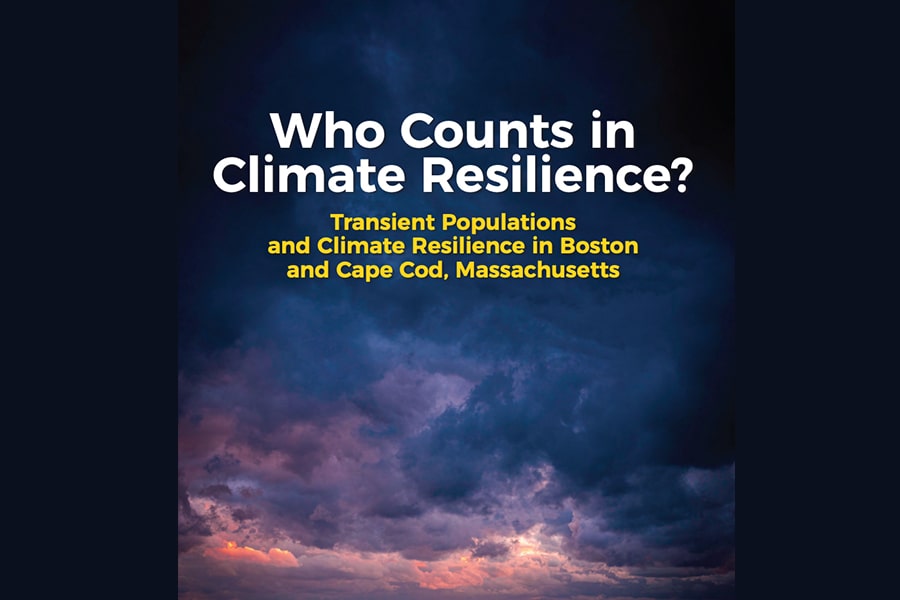
This report explores the ways that people who experience transience are impacted by climate change and the disconnection between how people working in social service organizations and people working in environmental planning organizations respond to and plan for supporting these populations during and after disasters.
Download the Full Who Counts In Climate Resilience Report September 2023
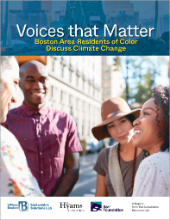
This report is a continuation of the 2020 report, "Views that Matter: Race and Opinions on Climate Change of Boston Area Residents." The researchers conducted in-depth focus group discussions that built upon the themes and findings of the previous report—highlighting residents’ insights and personal experiences.
Download the full report Voices That Matter
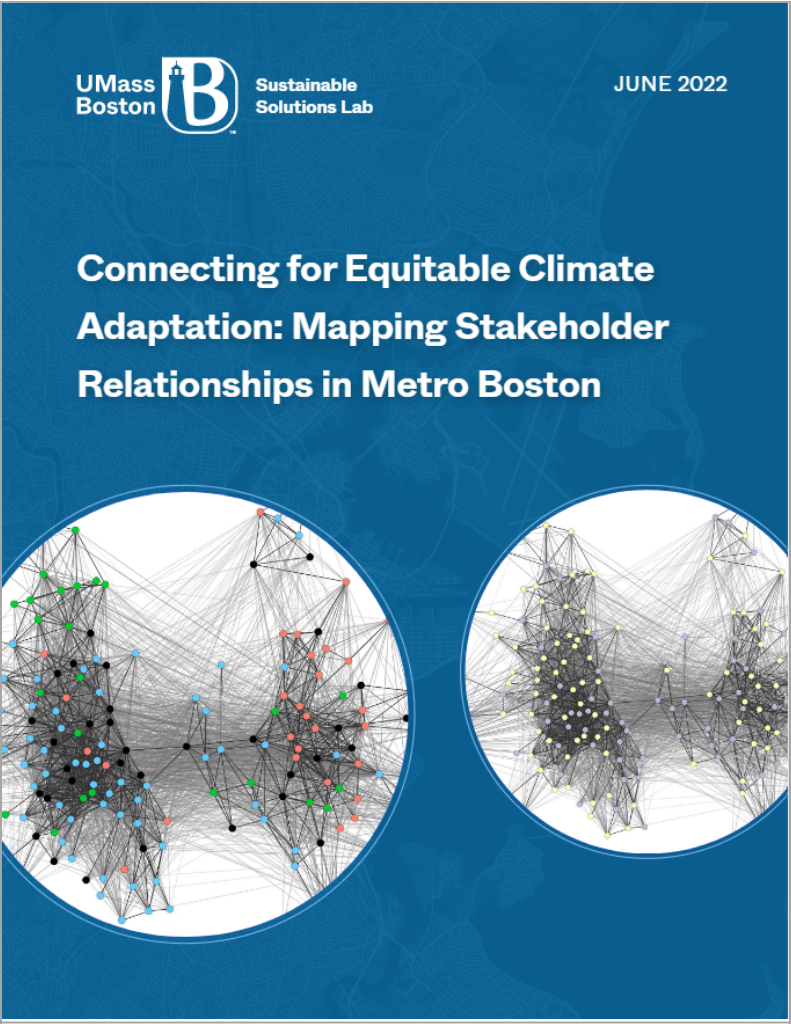
This report explores the collaborative connections among a set of stakeholders in Greater Boston in order to find themes and patterns in how the field of climate adaptation is operating.
Download the full Connecting for Equitable Climate Adaptation: Mapping Stakeholder Relationships in Metro Boston
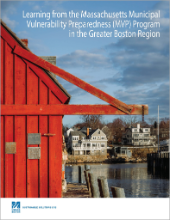
This report is a case study that looks at the design and implementation of the Municipal Vulnerability Preparedness (MVP) Program in several cities and towns in Massachusetts, with an emphasis on the Greater Boston Region.
Download the full report Learning from the Massachusetts Municipal Vulnerability Preparedness (MVP) Program in the Greater Boston Region
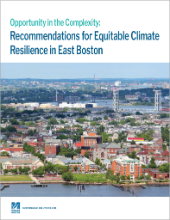
This working paper, funded in part by a grant from the McCormack Dean’s Office, aims to answer the question: What should an equitable climate resilience strategy for East Boston include?
Download the full report (English)
Download the full report (Español)
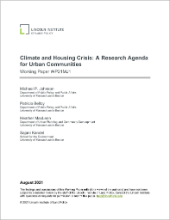
This transdisciplinary research agenda examines how the housing and climate crises intersect, what these intersecting crises mean to the experiences of diverse stakeholders, and how responses to specific research questions may support development of a range of policy and planning responses.
Download the full report: Climate and Housing Crisis: A Research Agenda for Urban Communities
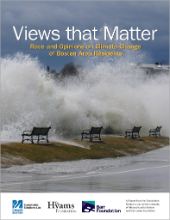
This project, which was produced in partnership with the Hyams Foundation and with the support of the Barr Foundation, is an effort to gain a better understanding of the views of people of color related to climate change.
Download the SSL_Views_That_Matter_9-2020.pdf
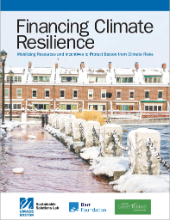
This report, sponsored by the Boston Green Ribbon Commission with the generous support of the Barr Foundation, looks at different financial mechanisms for climate resilience. It provides recommendations for the City of Boston and the region on how to pay for climate adaptation investments.
Click here to read the Executive Summary
Download the full report Financing Climate Resilience: Mobilizing Resources and Incentives to Protect Boston from Climate Risks
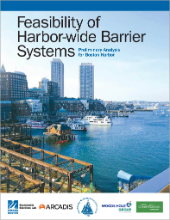
This report, sponsored by the Boston Green Ribbon Commission with the generous support of the Barr Foundation, looks at the feasibility of a Harbor-wide Barrier to protect the Boston Harbor from storm-surge and sea level rise.
Click here to read the Executive Summary
Download the full report Feasibility of Harbor-wide Barrier Systems: Preliminary Analysis for Boston Harbor
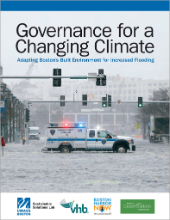
This report, sponsored by the Boston Green Ribbon Commission with the generous support of the Barr Foundation, looks at the governance needs that climate change presents for Boston and the Greater Boston region. It provides recommendations for how to adapt policies and governing institutions in the face of a changing climate.
Click here to read the Executive Summary
Download the full report Governance for a Changing Climate: Adapting Boston's Built Environment for Increased Flooding